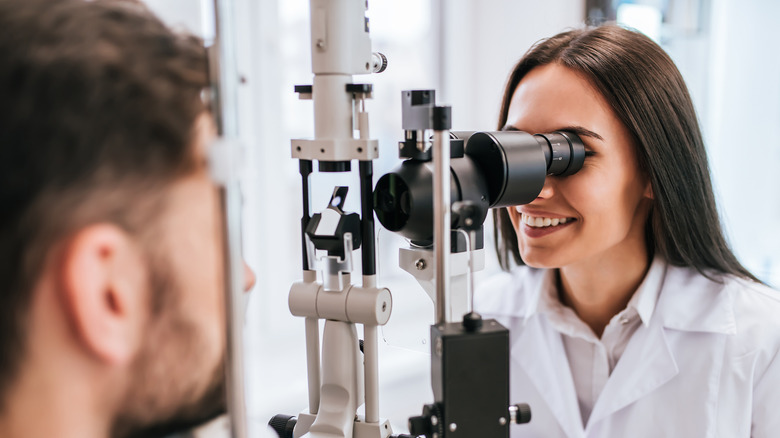Can You Really Get Stuck When You Cross Your Eyes?
It's a warning that many of us received over and over again as children, "Don't cross your eyes or they'll stick like that!" If we heeded the warning, we all knew of at least one kid who tried to put it to the test or swore they knew someone who got stuck like that. Of course, the kids who said they had a cross-eyed cousin or friend might have been telling the truth, as hard as it was to believe as children.
The American Optometric Association states that "lazy eyes" or crossed eyes are known clinically as strabismus. This is a general term and has 4 subcategories, depending on whether the eyes turn in, out, up, or down. Most of the time, the condition is inherited, though it can also occur in people with Down Syndrome or cerebral palsy. It may also develop if someone suffers a stroke or a head injury. Farsighted people who strain their eye muscles trying to bring things into focus may experience refractive error and strabismus as well. But can crossing your eyes strain the muscles in the same way? More importantly, can it trigger strabismus?
Strabismus facts vs. fiction
If you're worried that you might strain eye muscles while crossing your eyes, you can put your fears to rest. According to the Fort Lauderdale Eye Institute, your eyes cannot get stuck or overly strained when you cross them. It turns out that our eyes naturally move together a little when we focus on things close to us. Crossing your eyes is just an exaggeration of a natural response and isn't anything to worry about.
Even if it were possible, however, a person's eyes wouldn't be stuck like that forever. As the American Optometric Association explains, there are several treatment options for people with strabismus, whether they're born with it or it occurs later in life. These treatments largely involve corrective lenses, though the specific lens depends on the patient and type of strabismus. Vision therapy is also an option, as is surgery to shorten or adjust the muscles that hold the eye in place. In many cases, vision therapy is used in tandem with surgery to help patients adjust to their eye's new position. Your eyes won't get stuck if you cross them, but even if they did, there would be help available.


